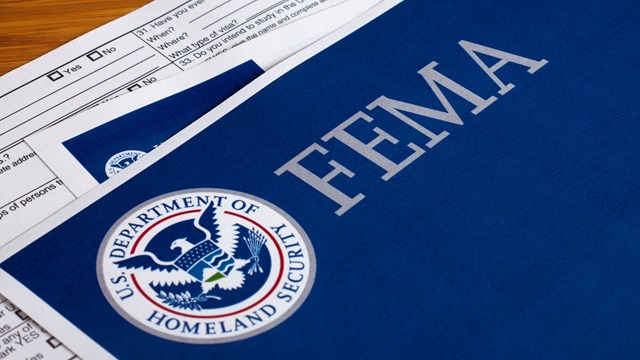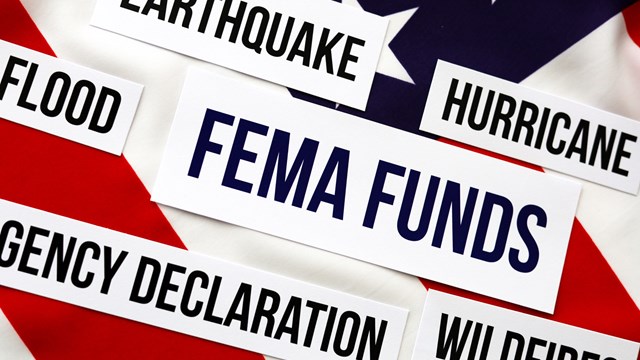
The legislative season is upon us, and in many states, bills specifically dealing with co-ops, condos and HOAs are wending their way through the legislative process. Even when bills aren't aimed directly at those forms of home ownership, many general housing-related bills impact the condo/co-op/HOA community. Some issues impact communities on a nationwide scale; some are strictly local. But increasingly, co-ops, condos and HOAs are becoming a big part of the national legal and legislative scene.
The View from D.C.
Sometimes, decision-making starts at the federal level. Brian Sullivan, a supervisory public affairs spokesman in the office of press relations for the U.S. Department of Housing and Urban Development (HUD), reminds us that the Federal Housing Administration, which is part of HUD, insures single-unit condominium loans for up to 30 years to purchase or refinance a unit in an FHA-approved condominium project, with certain stipulations. However, some of HUD’s restrictions on condo mortgages have proved controversial.
To this end, Sullivan cites a February 2016 piece by syndicated columnist Kenneth Harney titled “Bipartisan Vote in U.S. House Bodes Well for Condo Buyers.” The bill at issue, known as the Housing Opportunity through Modernization Act (HOME), passed the house 427-0. It would lower the minimum owner-occupancy ratio from 50 percent to 35 percent; abolish the agency’s restriction on condo associations’ transfer fees, and streamline recertification procedures to make them “less burdensome” for associations.
Another HOME act, H.R. 4696—Helping our Middle Income Owners Act, was referred to the House Committee on Ways and Means. This bill supported by the Community Associations Institute (CAI) amends the Internal Revenue Code to allow individual taxpayers an income-based tax deduction, up to $5,000, for qualified homeowners association assessments paid during the taxable year. The bill defines "qualified homeowners association assessments" as regularly occurring, mandatory financial assessments: (1) that are paid by a taxpayer to a homeowners association for the taxpayer's principal residence, (2) that directly benefit such residence, and (3) that arise from the taxpayer's mandatory and automatic membership in such association. The bill requires homeowners associations to file an informational return that sets forth the name, address, and taxpayer identification number of a taxpayer from whom the association receives assessments and the amount of such assessments.
CAI is an international resource organization for condominiums, cooperatives, homeowner and community associations and planned unit developments that monitors federal and state legislation, and takes positions on bills. For example, according to its website, the group supports the House’s Disaster Assistance Equity Act of 2015, sponsored by Rep. Steve Israel (D-Long Island), which amends an earlier disaster relief act to provide assistance to the “residential elements that are the legal responsibility of an association for a condominium or housing cooperative.” The bill would correct an inequity by which co-ops and condos can receive disaster loans, but not grants.
Conversely, an example of House bill CAI has opposed is HR 1301, also called the Amateur Radio Parity Act, which would require associations to allow “ham” radio communications and installations within their properties without regard to architectural review procedures.
The Institute of Real Estate Management (IREM) has a legislative arm as well. For example, it supports the aforementioned Housing Opportunity through Modernization Act. Media and Public Relations spokesman Matthew Lesh says IREM is monitoring any potential legislation in the states that would require specific licensing for community association managers.
“IREM believes that the management of HOAs and community associations should be licensed under existing state license laws,” Lesh says. “We urge that all forms of real estate management to be under the jurisdiction of existing state real estate broker and agent licensing laws.”
Lesh adds that “Marijuana use is also a hot issue for community associations. Sometimes an HOA may have covenants or rules against smoking on or around the property, but many are silent on this. Condo unit owners may see any rules on marijuana use as an attack on private property rights.”
Both CAI and IREM have nationwide legislative events in which members from chapters all over the country converge on Washington, D.C., making their wishes known with legislators and their staffs as well as federal agencies. On the state level, chapters of both organizations have legislative committees. IREM met in Washington, D.C. this spring and will meet again in the fall October 18-21 in San Diego. CAI just held its national conference May 4-7th in Orlando.
Federal action notwithstanding, however, the major action seems to be in the state legislatures.
Issues reflected in proposed legislation vary from state to state. Some topics are largely local. For example, one bill in the New York State Assembly would limit increases in assessed values of co-ops and condos—a big issue in Queens, where many older co-ops are having to pass on tax increases to the owners. In New Jersey, many storm-preparedness bills were introduced into the legislature after Hurricane Sandy.
But other issues, such as open board meetings, establishing a condo ombudsman, protecting unit owners from excessive fines, providing better rules for board elections and especially short-term rentals (which we’ll examine later), resonate across the country.
Making Their Wishes Known
Lawmakers don’t get their topics for housing-related bills out of thin air. Many industry organizations give their input. Among these, in the case of condos, co-ops and HOAs, are CAI, IREM, Building Owners and Managers Association (BOMA), and various local and state bar associations.
In some cases, organizations and chapters work with lobbyists who meet with legislators, seek to line up sponsors for proposed legislation, and serve as a conduit between members and legislators. However, much of the work is done by volunteers who work in the industry and make themselves available to answer questions and provide information to the lawmakers.
For example, Wheaton, Illinois attorney Patrick Costello of Keay & Costello, who is co-chair of the CAI Illinois Legislative Action Committee, prepares a list of bills on a monthly basis. “Since January 2016,” he says, “there have been at least 12 bills my committee has identified which have been introduced which impact the associations community.”
When condo-related bills are introduced, Costello says, “Most legislators want to know what the reason behind the legislation is, and what is trying to be accomplished or prohibited.” It is one of his committee’s functions, he adds, to help legislators know how bills will affect the situation in practice—rather than just in theory.
Similarly, Matthew Gaines, an associate attorney at the Boston-based condo law firm of Marcus, Errico, Emmer & Brooks, P.C., who chairs the Massachusetts Legislative Action Committee for CAI-NE, monitors all the bills filed that could impact condominiums. “When appropriate, I testify before various legislative committees and/or meet with legislators,” he says.
“In my experience,” he says, “given the thousands of bills that get filed every year ranging from health care to education to public safety, and many other topics, condo legislation is not really a `sexy’ topic.” That’s why organizations like CAI and people like him have to remind the legislators to move condo-related topics to the front burner.
In Florida, Fort Lauderdale attorney Donna DiMaggio Berger, a shareholder attorney with the law firm of Becker & Poliakoff, says, “Organizations like CALL (the Community Association Leadership Lobby), CAI and state bar associations help shape and impact community association law by providing input and education on the issues involved, assist with the drafting of legislative proposals, and giving testimony when needed in various committee stops.”
New York real estate attorney Phyllis Weisberg, a partner in the law firm of Montgomery McCracken Walker & Rhoads, LLP, is the chair of the Cooperative and Condominium Law Committee of the New York City Bar Association. The committee, she says, “will look at legislation and write reports. The City Bar has to decide whether or not to approve that as an official City Bar position. The committee itself cannot take a formal position.”
The City Bar, Weisberg adds, also has a lobbying department. “They would tell us what the status of a bill [that the association is following] is, what the time period [for passage] is, make sure the right persons see our report.”
New York real estate attorney Ilene Guralnick, who has represented hundreds of co-op boards and condo associations, comments on conflicts between different committees of the same association.
“Getting any proposed legislation recommended from the committees through the hierarchy of the New York State and New York City Bar Associations is a difficult and time-consuming process,” she says. “For example—“no pet” rules. Clearly the co-op/condo folk want legislation that will allow a board to control the situation. The pet committees do not. There is also the complication fact of alleged disabilities—i.e. comfort pets (not to be confused with seeing-eye dogs).”
Some of the Important Issues
Here are some of the important issues that CAI, its affiliates, other organizations and legal professionals are monitoring.
New Jersey attorney Christine Li prepares regular updates on the CAI-NJ (Community Associations Institute of New Jersey) website calling members’ attention to important bills. For example, she points to A-3793 and S-2545, which would allow common interest communities to petition the court to force a lender to expedite foreclosure if a property qualifies as abandoned. “These bills stand to yield much-needed financial relief and enhance the aesthetics of our communities,” she says.
She also mentions S-3235, which was introduced “with the stated purpose of compelling the distribution of public information to board members.” For example, board members would be required to give out their personal e-mail addresses.”
In Massachusetts, says Gaines, “There are a couple of bills that are gaining traction this year. One bill deals with owners’ access to condo records. Another bill (S. 707) deals with the priority liens for condo fees. There is also a bill filed about construction defects in condominiums (S. 815). We’ve also seen a push recently for a bill (S. 1056) dealing with a right to dry (i.e., the right to use clotheslines in common areas).”
The last-mentioned issue has come up in other states as well. It pits the association’s concern about the aesthetics of the common areas with environmentalism as drying clothes outdoors cut down on the use of energy-consuming dryers.
Among the Illinois bills Costello and his chapter are monitoring are proposed substantial changes to the Ombudsperson Act, technical changes to the Common Interest Community Association Act and the Condominium Property Act, clarification-based bills to both acts; and some governance-based bills that are designed to clarify boards’ rights to correct errors in their documents, enact rules and regulations, and clarity what topics can be discussed in closed portions of meetings.
“In addition,” he says, “a series of bills have been introduced (HB 4489, 4490 and 4491) which, in a general sense, make it easier for owners to sue their respective association and/or board, make it more difficult to impose attorneys’ fees against defaulting unit owners; and … grant owners more defenses in actions to collect unpaid assessments.”
An example of a municipal bill opposed by the New York City Bar is Int. 0851-A, a “local law” introduced before the City Council to oppose harassment of businesses and other non-residential tenants. The City Bar felt that the City Council may not have the power to effect such changes, that “harassment” is too broadly defined, and that that the bill, designed to protect “mom and pop” businesses, would also protect banks, chain restaurants, chain drugstores, etc.
Weisberg adds that it would hamper a co-op or condo from “recapturing” commercial space for its own use—for example, to build a gym—would make it difficult to get rid of a problem commercial tenant like a rowdy bar, and “would you require that you renew `sweetheart’ leases, 99-year leases, on ridiculous terms.”
The Case of Airbnb
One issue that has vexed board members, legal professionals and lawmakers throughout the country is the rise of Airbnb and other home-sharing services that cater to tourists. Many co-op and condo owners use the service to lease their units on a short-term basis—even when this is barred by their community’s rules.
Sometimes, it’s not only the association’s rules—in New York City, an administrative judge ruled in 2013 that Airbnb violates the city’s illegal hotel law, which bars an owner from renting his apartment out for less than 30 days unless the owner is still present.
In New York City, says Guralnick, the Department of Buildings now has a unit to investigate Airbnb complaints, and the unit “seems to be assisting agents and boards. Other than that, cameras and research directly on the Airbnb sites are the best proof [that a unit owner is in violation of their building's rules against subletting].” She adds that in her experience, it is difficult to get any useful information directly from Airbnb. “Even if a tenant makes a one-time mistake, boards cannot secure from Airbnb anything that will confirm that the listing has been taken down.”
Not everyone in New York agrees with co-op and condo administrators' generally dim view of Airbnb. Some want to encourage Airbnb and similar services, arguing that they contribute to the general economy. In 2014, two bipartisan bills were introduced in the state legislature “to create and regulate a new class of New York City multiple dwelling units intended for occupancy in periods of less than thirty consecutive days.” The bill’s sponsors described short-term rentals as “a legitimate business model.” The City Bar opposed it. The measure was not adopted, but Weisberg says, “We fully expect this or similar bills to surface.”
Florida attorney Berger says her firm is attempting to resolve the problem by amending governing documents to specify that short-term renting out of rooms through services like Airbnb “Or even allowing non-paying occupants through couch-surfing services is strictly prohibited,” and contacting the companies who advertise these services and “advising them that the practice is prohibited in our client’s community.”
Costello reports that Airbnb is also a hot topic in Chicago and Illinois in general. Bill HB 6243, which was introduced in February, would provide that “a short-term residential rental property listed on internet-enabled platforms (such as Airbnb) shall not be regulated by a unit of local government in a manner more restrictive than bed and breakfast establishments are regulated under the Bed and Breakfast act.” Obviously, this bill represents the same opinion as the New York bill quoted above.
“Is this battle worth fighting?” ask Gaines and his fellow attorneys Mark Einhorn and Alex Levine on MEEB’s website. “Some board members think not; there is little harm, they suggest, in this kind of a swap arrangement. But residents concerned about having strangers in their midst will be no less concerned if the strangers are `swapping’ rather than renting.
“When a board member expressed that concern to the unit owner, he responded quickly that the visiting family were `cousins’—probably not true, but difficult to challenge.”
The Presidential Race
One final word—few of those interviewed would speculate in detail on how the results of the presidential election would impact co-op/condo/HOA legislation.
Lesh of IREM did comment on one specific aspect of the race. “We as managers want carried interest to continue to be taxed as a capital gain, and both parties have mentioned putting it on the chopping block. Hillary Clinton’s comments last year about targeting interest definitely got our members’ attention. Ironically, the Republican frontrunner, Donald Trump, made similar comments this past fall, saying he would also target changing carried interest and tax it as earned income and not a capital gain.”
Realtors, managers, co-op and condo board members, unit owners, shareholders and renters all have their own agendas, some of which overlap and some of which don’t. Wherever legislators get together, organizations representing these groups will be there, expressing their interests.
Raanan Geberer is a freelance writer and a regular contributor to The Chicagoland Cooperator.






Leave a Comment